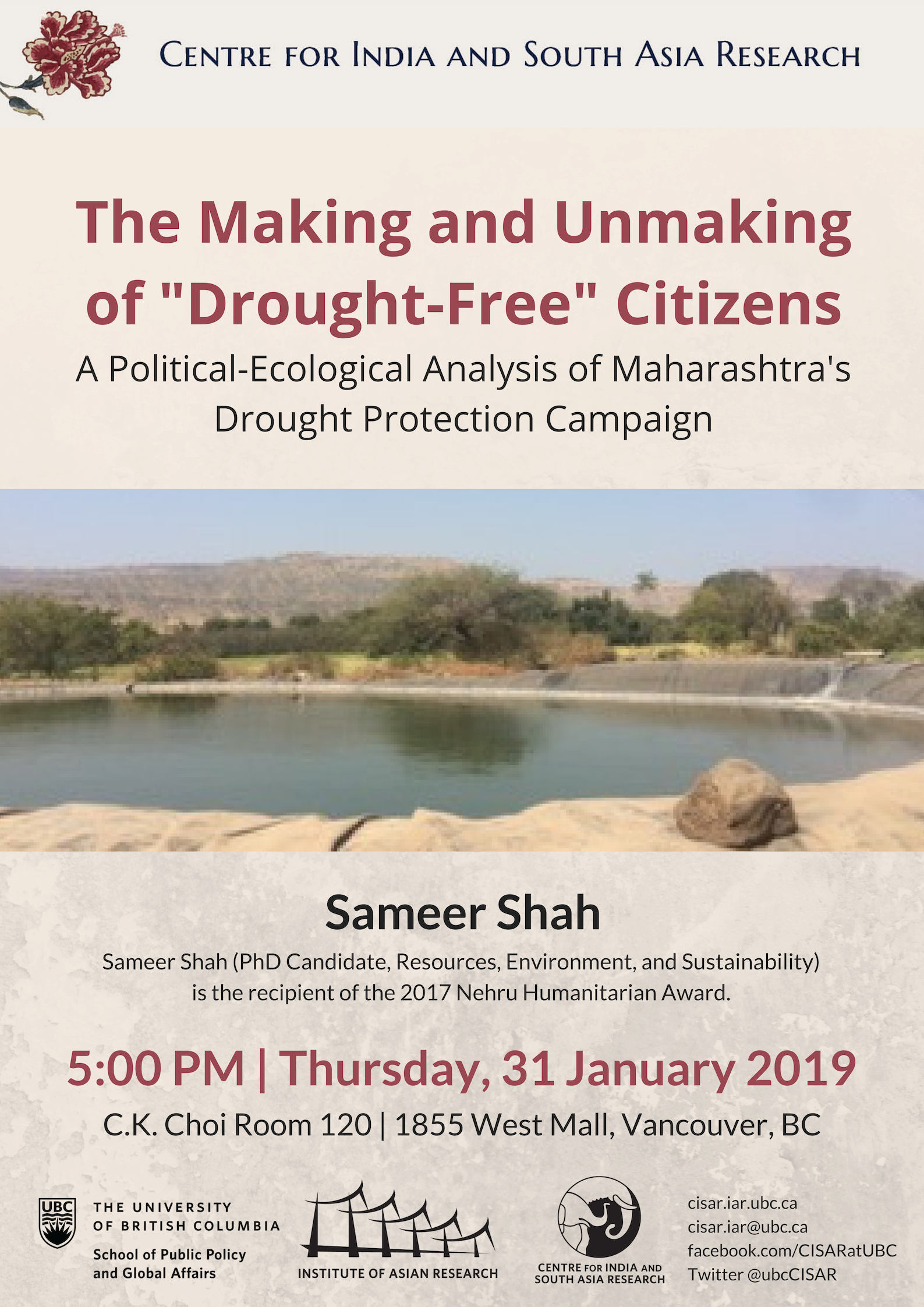
Abstract
This talk will critically explore the political-ecology of water and water infrastructures in the making of “drought free” villages in rural areas of Maharashtra (India). Drawing on and learning from interviews with households and experts, Sameer will show how decentralized infrastructure overlays with social, economic, and political difference in the making of “drought-free” citizens. Sameer ends, arguing the focus must turn to improving access (an institutional phenomenon), rather than solely maintaining efforts to improve its availability (a biophysical phenomenon).
About the Speaker
Sameer is Liu Scholar, SESYNC Graduate Research Fellow, and Governor General Gold Medalist at The University of British Columbia’s Institute for Resources, Environment, and Sustainability and their Program on Water Governance. He specializes in water security and governance at the rural-urban divide, with a keen focus on developing evidence-based policy recommendations to protect vulnerable peoples facing socio-hydrological change in global South regions.